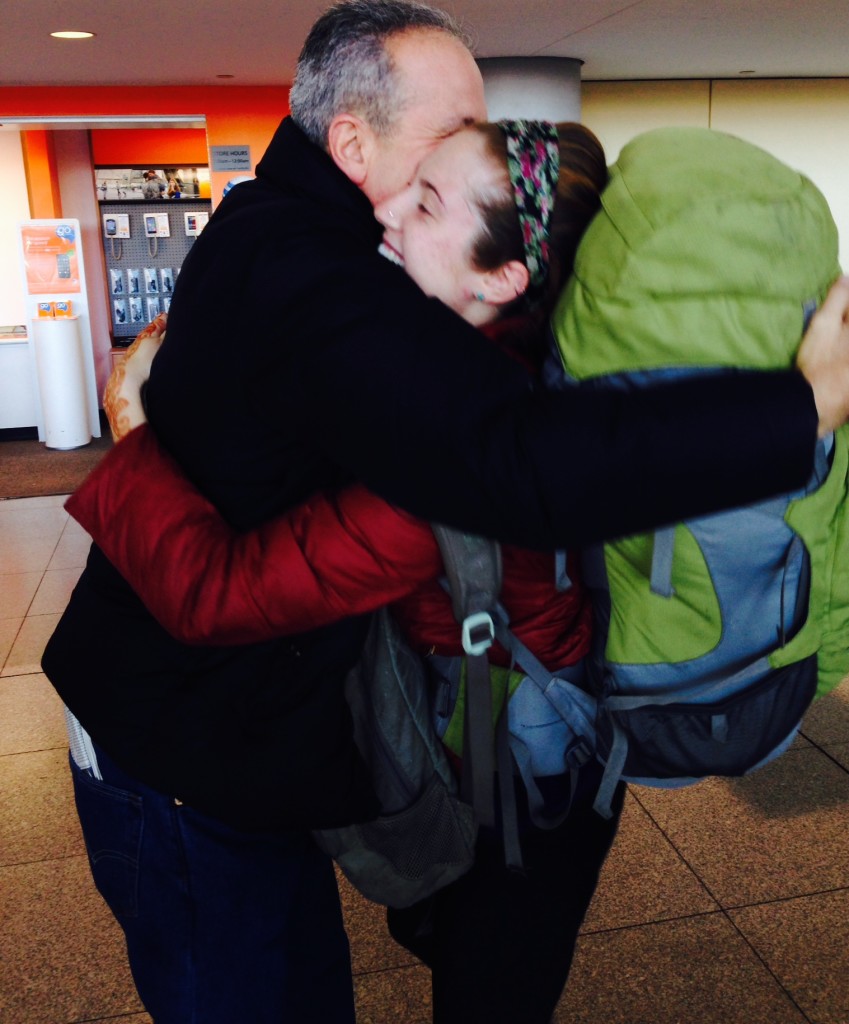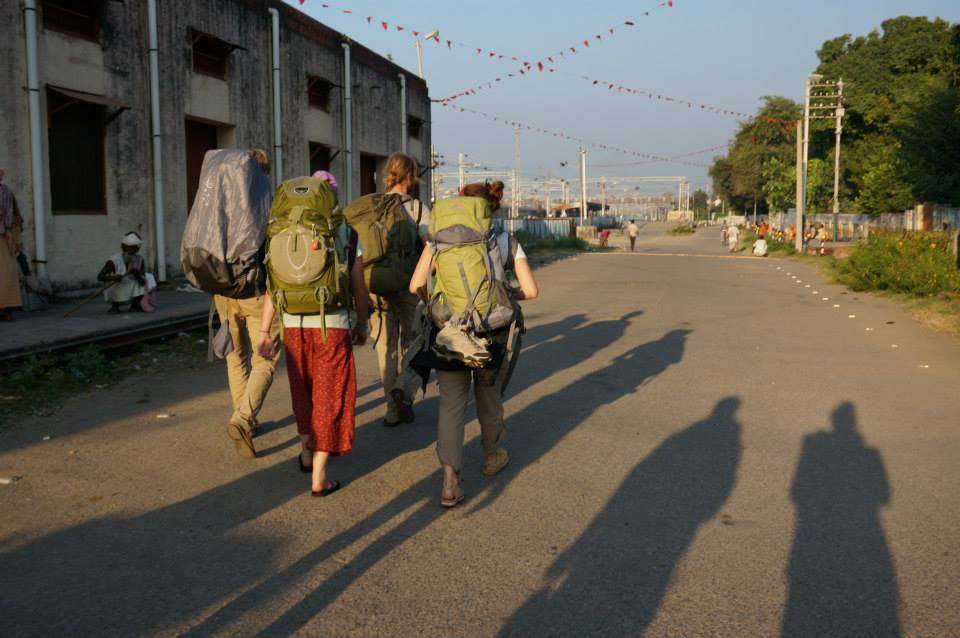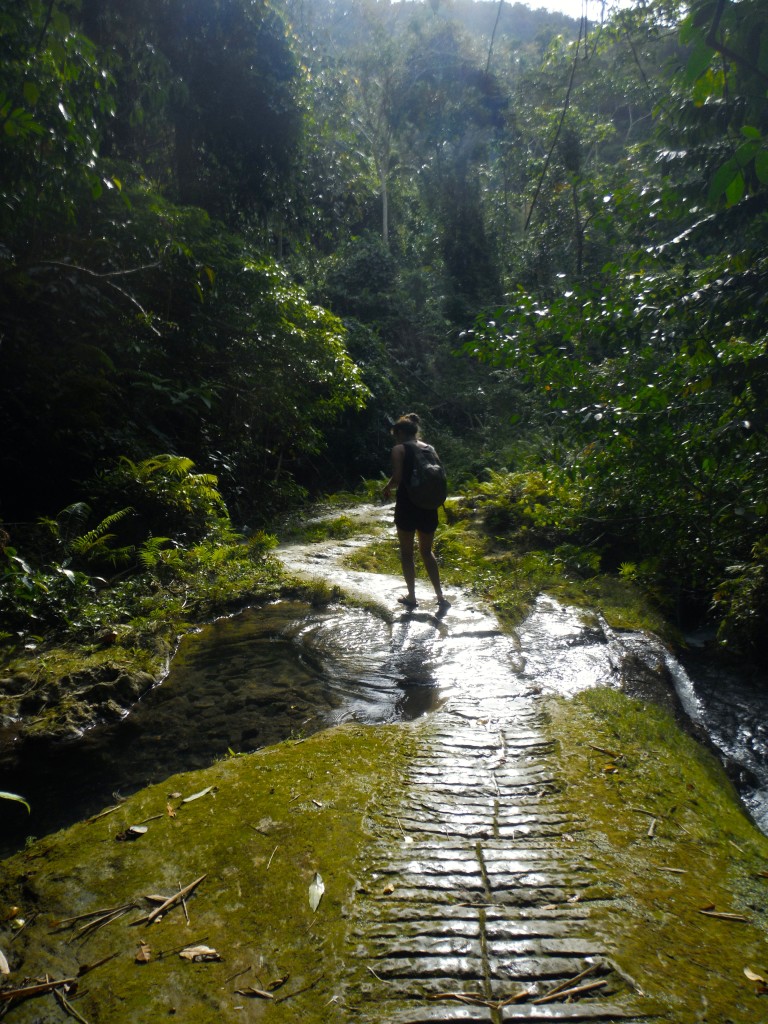Photos and article by Carpe Diem Alumni Evangeline Scazzero
If you’re reading this, there’s a good chance you’ve already been poisoned.
Poisoned by what your parents call “the travel bug,” what your friends call “you’re so lucky,” and what your college advisor will eventually call, “put down the study abroad pamphlets.”
Full disclosure, I have also been poisoned.
Yet here I am, still alive and well. I’ve survived it all. Bed bugs, food poisoning, dehydration, spider bites, tonsillitis, a mysterious lump on my throat, and the most disorienting of them all, reverse culture shock.

Reverse Culture Shock (n.):
An emotional and psychological stage of re-adjustment when returning home after an excursion and witnessing old norms with new eyes.
Processing the ironic, and at times frustrating, feelings of reverse culture shock after a gap semester or gap year abroad is a crucial part of a cultural immersion experience. Here’s why:
Reflection
There’s a huge difference between reflecting and dwelling after you come home from your sojourn. Differentiating between the two can save you a lot of trouble in the long run.
Reflecting on your trip while at home improves your understanding (of what the heck just happened), and creates grateful anticipation for the next season of your life, wherever that may be. It helps you verbalize your experiences so your family, friends, and future employers are aware of just how unique you are! It’s the medicine for your restlessness.
Dwelling on your trip while at home removes you from the present moment, and delays the opportunity for you to be investing in bigger and better things.
Here are some ways you can practice healthy reflection after your gap year travel:
- Introduce a “gap year tradition” to your family (say a gratitude at dinner or take a family member out for a cup of chai – what’s something you did on your gap year that you miss? Chances are you can make it happen at home.)
- Pinpoint exactly you’re missing about being abroad and try to cultivate that feeling in a new way. Miss trying new foods? Visit an ethnic restaurant you haven’t been to. Miss creating things with your hands? Start a DIY project. Miss seeing new places? Walk around your nearest city until you’re lost.
- Revisit the goals you set for yourself when you were overseas. Honor those goals and then celebrate your accomplishments. Once that’s out of your system, create another list of challenging goals that can apply to life at home, and conquer those goals too.
- Limit yourself to a select 7 #TBT photos that stay on your camera roll. Store the rest on your computer. You can save looking through the entire album from your trip for special occasions.
- Find a student who is thinking of taking a gap year. Offer to meet up with them and answer any of their questions. I feel a huge sense of fulfillment when I share gap year experiences with prospective students.
- Focus on the positive parts of being home (Your own toilet! Free shampoo! The option to drive! Fresh laundry!) Express thanks for all of those little things.
- Keep in touch with friends from your gap year, but don’t over do it. If you find yourself texting your gap year friends everyday, plan a real-life reunion instead. You can share all the updates on your life then!

Expanding Comfort Zones
When I’m on a train in a foreign country, the unknown excites me. But when I’m home and have to make “big life decisions,” the unknown absolutely terrifies me.
One of the hardest things I had to do when I got home from my trip was face an ex-boyfriend. I had no idea what to expect. Everything in me wanted to avoid this uncomfortable situation. Being in close proximity to him at my summer job forced me to further process my buried resentment and bring closure to a stressful part of my life. This small step in personal development opened up one of the greatest summers of my life.
Practicing Boundaries
During my gap year, I learned that solitude energizes me just as much as being with people does. This discovery was groundbreaking but didn’t become life changing until I came home and applied it.
The transition back to my fast paced, iPhone-dependent social life in New York City was overwhelming. At times, reconnecting with friends who were excited that I was home felt like an obligation, rather than a joy.
There were mornings I felt guilty for not spending time responding to people’s texts. And there were evenings that I felt responsible for disappointing people who wanted to hang out.
Setting boundaries when I craved alone time was challenging. But allowing myself to put my needs first and say “no thank you” to meet ups that were more of a pain than a gain was liberating. I now participate in things when I want to, rather than when I feel like I “have to,” and my relationships are much richer because of it.
I hope this has given you insight into what a blessing coming home really is. How I see it, the more content you are being where you are, the more exhilarating your next gallivant around the globe will be.
—
 Evangeline is an alumni of the Carpe Diem Education India semester program (Fall 2013). Following her semester with Carpe, she extended her gap year to include teaching English in the Philippines, backpacking through Thailand and Cambodia with a fellow Carpe alumni (shout out to Walker Johnston!), and being a special needs counselor at a sports camp in Canada.
Evangeline is an alumni of the Carpe Diem Education India semester program (Fall 2013). Following her semester with Carpe, she extended her gap year to include teaching English in the Philippines, backpacking through Thailand and Cambodia with a fellow Carpe alumni (shout out to Walker Johnston!), and being a special needs counselor at a sports camp in Canada.
Evangeline is currently studying Journalism+Design at The New School in NYC. She’s also been a Donor Communications Intern at She’s The First, a nonprofit that sponsors girl’s education in low-income countries. Her life-long goal (one of many) is to speak at a Ted Talk event about the transformative power of gap years. You can follow her “very average life” on Instagram @evascaz. If you’ve also been poisoned with the travel bug and are struggling with reverse culture shock, Evangeline would love to hear from you: evascaz@gmail.com

